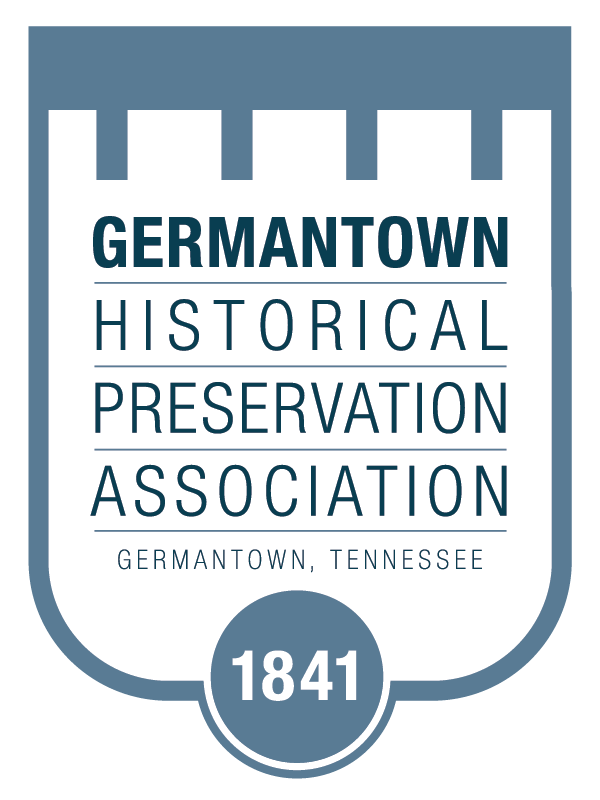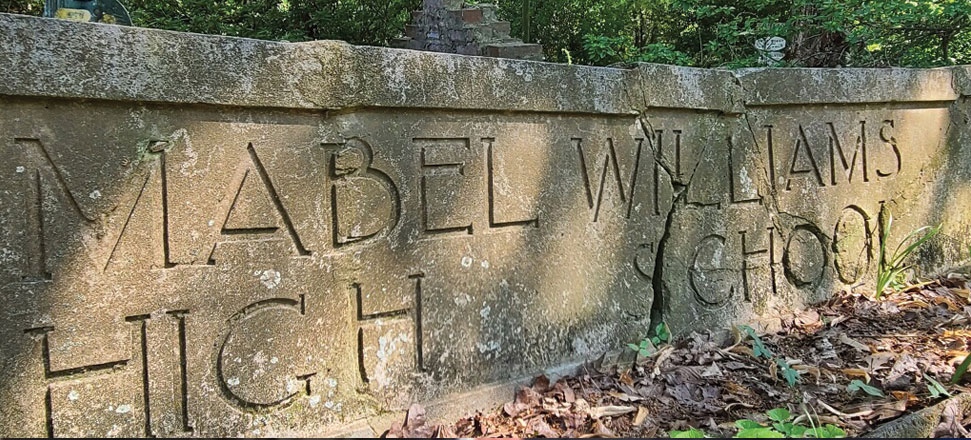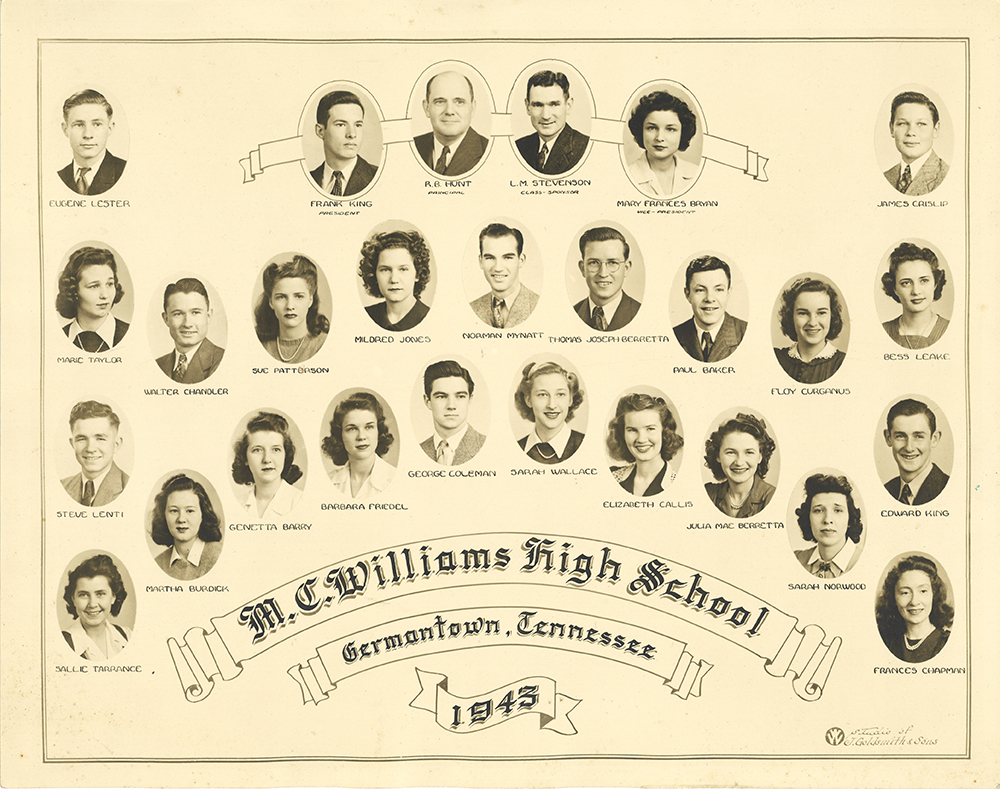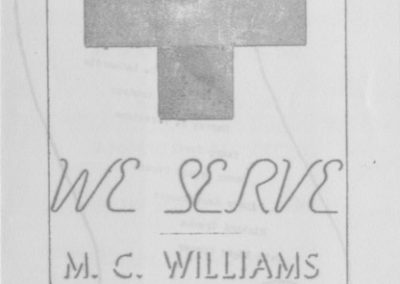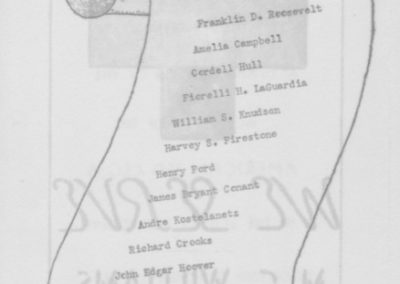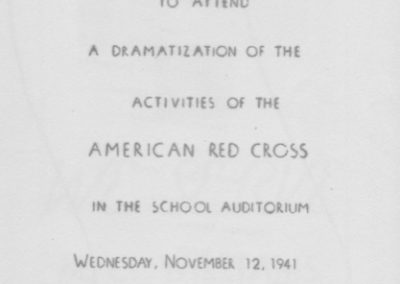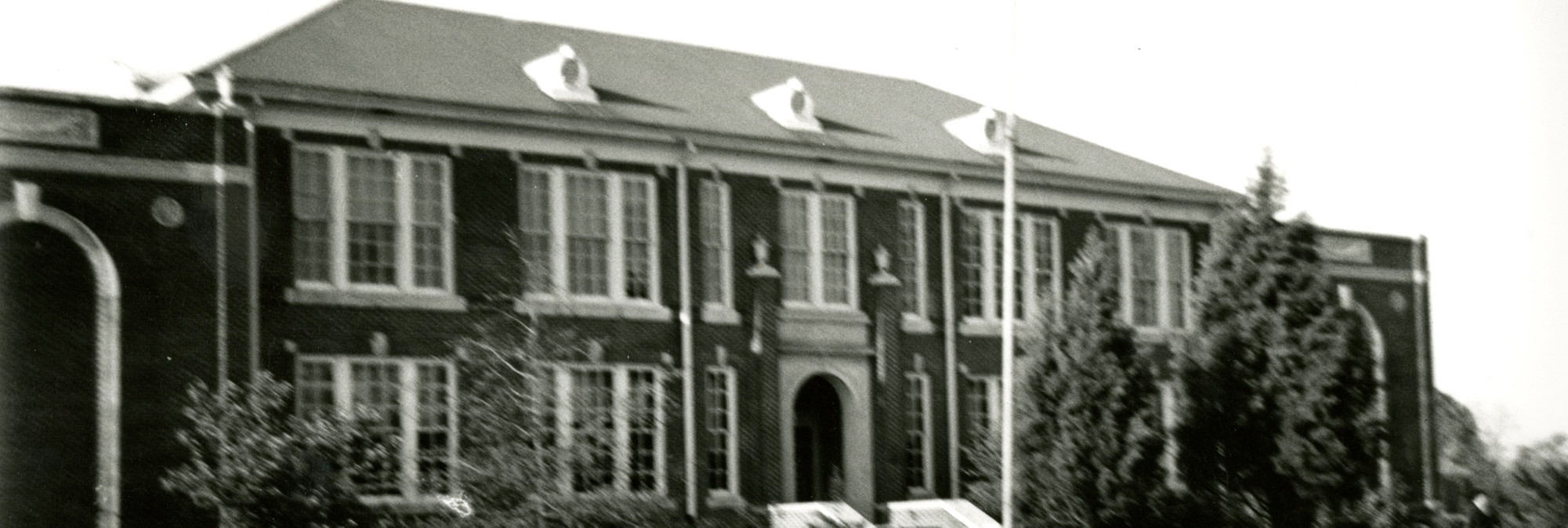
Williams Sisters Set Example for Women
The Commercial Appeal – Memphis
Thursday, May 19, 1994
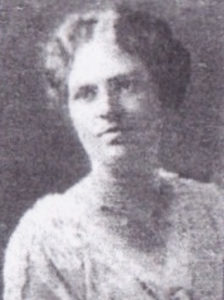 “She is one of twelve women competent to hold the presidency of the United States.” So, a national publication described Charl Ormond Williams, a native of Arlington, who was a leader in the women’s suffrage movement and in national education and professional women’s circles.
“She is one of twelve women competent to hold the presidency of the United States.” So, a national publication described Charl Ormond Williams, a native of Arlington, who was a leader in the women’s suffrage movement and in national education and professional women’s circles.
She began her career as a rural teacher and became a secondary school teacher before following her sister, Mabel Williams Hughes, as superintendent of Shelby County Schools, in 1914.
In 1921, she was elected president of the National Education Association (NEA), the first county school superintendent to receive such an honor and the youngest person to hold the office.
“Between them, the Williams sisters have been responsible for educating just about the entire country for the past fourteen years,” a Memphis newspaper said in 1922 when Charl Williams was elected field secretary of the NEA and left for Washington to take the full-time position.
As secretary, she traveled 30,000-50,000 miles a year all over the country.
From her appointment in 1922 until her retirement in 1950, she helped build a strong organization. She lobbied in favor of a cabinet-level Department of Education and in favor of federal aid to education. She campaigned against discrimination against married women as teachers.
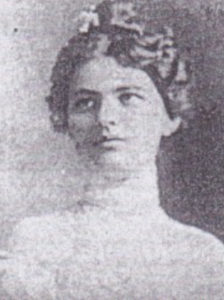 She had seen an example of this discrimination in her own family-her sister Mabel had to retire as school superintendent when she married Louis W. Hughes.
She had seen an example of this discrimination in her own family-her sister Mabel had to retire as school superintendent when she married Louis W. Hughes.
Charl Williams was active in Democratic politics: The first woman from Tennessee to become a member of the Democratic National Committee, and the first woman to be a national vice-chairman of the party, in 1920.
That was the year when Tennesseans became the final state to ratify the 19th Amendment, giving women the vote. She had been one of the organizers of the suffrage campaign and had spoken before the joint meeting of the Senate and House committees, saying that the men of Tennessee would give the women their rights.
Eleanor Roosevelt recognized her long service to the party n 1940, witting about her in her newspaper column, “My Day.”
In 1935, Charl Williams was elected president of the National Federation of Business and Professional Women’s Clubs (B&PW), the first teacher to hold the post.
From that position, she lobbied for a greater feminine element in politics. “Women Unite for Effective Democracy” was the slogan of the B&PW.
She served a term as national vice-president of the Parent Teachers Association, and in 1955 was elected national vice-president of Phi Beta Kappa.
Her manner was described as “brusque but friendly.” At age 70, she toured the Soviet Union, Greece, Istanbul, Egypt and Saudi Arabia, visiting educational institutions and giving her opinions on what she saw.
She was the daughter of Crittenden Williams and Minnie Lawrence Thomas Williams, who had settled in Arlington in 1883, moving from a farm at Fisherville that had been settled by Crittenden Williams’s grandfather.
There were four daughters and two sons in the Williams family, all educated at Arlington High School.
The school had opened in 1884 under the auspices of the Memphis Conference of the Methodist Church. It was a subscription school. Each pupil paid $4 a month to attend the two-story brick building, which was on a hill overlooking the village.
In 1895, the school was taken over by the county school system. A new building was erected in 1912, during the six years that Mabel Williams was superintendent of schools.
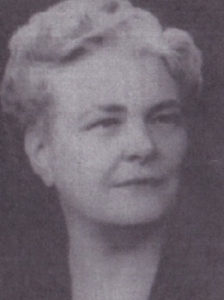 Mabel Williams Hughes was also a groundbreaker. IN 1909, she was one of seven women on the 20-member panel formed to get the Normal School (now Memphis State University to locate in Memphis. She was the first female president of the Tennessee Public School Officers Association and the first female president of the West Tennessee State Teachers Association.
Mabel Williams Hughes was also a groundbreaker. IN 1909, she was one of seven women on the 20-member panel formed to get the Normal School (now Memphis State University to locate in Memphis. She was the first female president of the Tennessee Public School Officers Association and the first female president of the West Tennessee State Teachers Association.
In the mid-1930s, she was Tennessee state president of the Parent-Teacher Association and vice-president of the National Congress of PTAs. In 1946, she was elected national president of the PTA.
In 1951, Mabel Williams Hughes was elected to the Tennessee Senate where she served three consecutive terms, working for the improvement of public education. Her husband had served in the state legislature from 1927 to 1932 and was serving on the County Court when he died in 1945.
When she retired from the Senate in 1957, her son, Lawrence T. Hughes, was elected to succeed her. It was the first time that a mother, father, and son all had been elected to the state legislature.
All four of the Williams sisters had active lives.
Merle Williams Wilbourne was active in women’s club work in Arkansas. She was a delegate to the Democratic Convention in 1932 that nominated Franklin Roosevelt for president.
Mary Allen Williams taught history at Central High School in Memphis and in Pittsburgh.
Sources:
Rachel Herring Kennon Burrow, “Arlington, A Short Historical Writing of the Town (1962).
Wilma Dykeman and Carol Lynn Yellin, Tennessee Women, Past and Present (1977).
Elizabeth Taylor, The Woman Suffrage Movement in Tennessee (Bookman Associates, 1957).
Marsha Wedell, Elite Women and the Reform impulse in Memphis 1975-19 (University of Tennessee Press, 1991),
Files in the Memphis Room of the Memphis Public Library and Information Center.
